 W
WGeneral Sir Hugh Arbuthnot, KCB was a British Army officer and Member of Parliament for Kincardineshire 1826–1865.
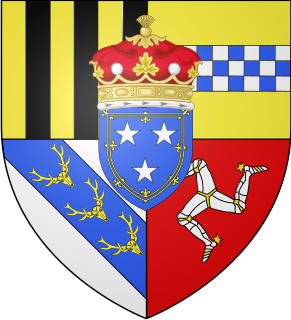 W
WJames Thomas Stewart-Murray, 9th Duke of Atholl, 14th Baron Strange, 8th Baron Percy, styled Lord James Stewart-Murray until 1942, was a Scottish peer and soldier.
 W
WLieutenant General Sir Colin Muir Barber & Bar was a senior British Army officer who fought in both World War I and World War II where he commanded the 15th (Scottish) Infantry Division during their actions across Northwest Europe, from August 1944 until Victory in Europe Day in May 1945. Barber was reputed to be the tallest officer in the British Army, and thus earned the ironic nickname "Tiny".
 W
WLieutenant-General Sir Alan Cameron of Erracht was a Scottish soldier who, at his own expense in 1793, raised the 79th Regiment of Foot.
 W
WColonel Sir Donald Hamish Cameron of Lochiel KT CVO TD JP was the 26th Chief of Clan Cameron, a Scottish landowner and a financier. He was also known simply as Lochiel while clan chief.
 W
WLieutenant-Colonel Robert Harris Carnwath Dalzell, 11th Earl of Carnwath was a Scottish hereditary peer and soldier.
 W
WGeneral Sir Alexander Frank Philip Christison, 4th Baronet, was a British Army officer who served with distinction during the world wars. After service as a junior officer on the Western Front in the First World War, he later distinguished himself during the Second World War, where he commanded XV Indian Corps, part of Sir William Slim's Fourteenth Army, during the Burma Campaign. He then went on to have a successful postwar career, and eventually, in late 1993, lived to the age of 100.
 W
WJames Aikman Cochrane, DSO, MC was a Scottish soldier who was awarded the Military Cross and the Distinguished Service Order during the Second World War. He later had a career in book publishing and printing and wrote a well-received account of his war-time experiences.
 W
WLieutenant-Colonel Lord Ninian Edward Crichton-Stuart was a Scottish senior officer in the British Army and Member of Parliament. He was killed in action in the First World War. The second son of the Honourable Gwendolen Mary Anne Fitzalan-Howard and John Crichton-Stuart, 3rd Marquess of Bute, he entered the army in 1903 and served in the Queen's Own Cameron Highlanders and the Scots Guards as a lieutenant. After marrying he began a career in politics, serving first as a councillor on Fife County Council, Scotland. His family having close connections to the city of Cardiff in Wales, he fought and lost the January 1910 election there as a Liberal Unionist candidate. The resulting hung parliament led to a second election in December 1910, in which Crichton-Stuart won the seat.
 W
WLieutenant-Colonel Angus Falconar Douglas-Hamilton VC was a Scottish recipient of the Victoria Cross, the highest and most prestigious award for gallantry in the face of the enemy that can be awarded to British and Commonwealth forces.
 W
WMajor-General Sir James Syme Drew was a decorated British Army officer who saw service during both the world wars. He served as Aide-de-camp to the King, commanded the 52nd (Lowland) Infantry Division, was Colonel to the Queen's Own Cameron Highlanders, and became Director-General of the Home Guard and Territorial Army.
 W
WCharles Adolphus Murray, 7th Earl of Dunmore VD, styled Viscount Fincastle from birth until 1845, was a Scottish peer and Conservative politician.
 W
WLieutenant General Sir John Spencer Ewart was a Scottish officer in the British Army who became Adjutant-General to the Forces.
 W
WLieutenant-Colonel Donald Dickson Farmer VC MSM was a Scottish recipient of the Victoria Cross, the highest and most prestigious award for gallantry in the face of the enemy that can be awarded to British and Commonwealth forces.
 W
WLieutenant General Sir James Andrew Harcourt Gammell was a British Army officer who fought during both World War I and World War II.
 W
WJames Hector Northey "Hamish" Gray, Baron Gray of Contin, was a Scottish Conservative politician and life peer.
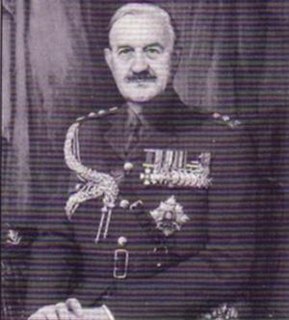 W
WGeneral Sir Peter Mervyn Hunt, was Chief of the General Staff, the professional head of the British Army, from 1973 to 1976. He served in the Second World War and commanded British Forces deployed in response to the Indonesia–Malaysia confrontation. Later in his career he provided advice to the British Government at a time of continuing tension associated with the Troubles in Northern Ireland.
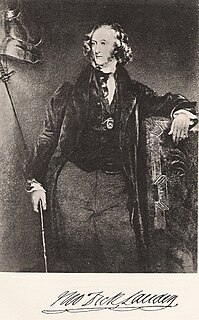 W
WSir Thomas Dick Lauder of Fountainhall, 7th Baronet, FRSE FSA(Scot) LLD was a Scottish author. He served as Secretary to the Board of Manufactures (1839–), on the Herring Fisheries Board, at the Royal Institution for the Encouragement of the Fine Arts, and as Deputy Lieutenant of both counties of Moray and Haddington.
 W
WMajor-General Simon Joseph Fraser, 14th Lord Lovat and 3rd Baron Lovat,, was a leading Roman Catholic aristocrat, landowner, forester, soldier, politician and the 23rd Chief of Clan Fraser. While legally the 14th Lord Lovat, he was referred to as the 16th Lord.
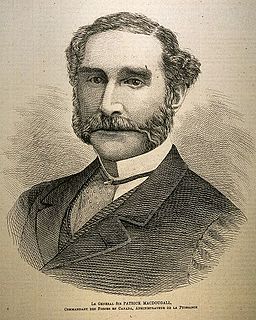 W
WGeneral Sir Patrick Leonard MacDougall, was a British Army officer who became Commander of the British Troops in Canada.
 W
WMajor-General Sir Fitzroy Hew Royle Maclean, 1st Baronet, was a Scottish soldier, writer and politician. He was a Unionist Member of Parliament (MP) from 1941 to 1974 and was one of only two men who during the Second World War enlisted in the British Army as a private and rose to the rank of brigadier, the other being future fellow Conservative MP Enoch Powell.
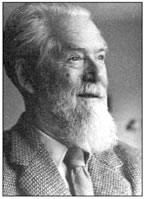 W
WJohn Macmurray was a Scottish philosopher. His thought both moved beyond and was critical of the modern tradition, whether rationalist or empiricist. His thought may be classified as personalist, as his writings focused primarily on the nature of human beings. He viewed persons in terms of their relationality and agency, rather than the modern tendency to characterize them in terms of individualism and cognition.
 W
WIan Colin Maitland, 15th Earl of Lauderdale DL, styled Viscount Maitland between 1924 and 1931, was a representative peer for Scotland in the House of Lords from 1931 to 1945.
 W
WSir John Helias Finnie McEwen, 1st Baronet or Jock McEwen, was a Scottish Unionist politician who served in the House of Commons as Conservative Member of Parliament for Berwick and Haddington from 1931 until 1945.
 W
WJames Douglas McLachlan (1869–1937) was the first British wartime Military attaché to Washington, D.C.
 W
WGeneral Sir Horatius Murray, was a senior British Army officer who served with distinction during the Second World War and later in the Korean War.
 W
WCaptain James Dalgleish Pollock VC was a Scottish recipient of the Victoria Cross, the highest and most prestigious award for gallantry in the face of the enemy that can be awarded to British and Commonwealth forces.
 W
WMajor-General James Walter Sandilands (1874–1959) was a senior British Army officer who served as Commander of British Troops in South China.
 W
WJohn Forbes-Sempill, 18th Lord Sempill was a Scottish peer, the 18th Lord Sempill and 9th Baronet of Craigievar.
 W
WMajor General Frank Keith Simmons, was a senior British Army officer during the Second World War. He was commander of the Singapore Fortress when it fell to the invading Imperial Japanese Army in February 1942. He spent the remainder of the war as a prisoner of the Japanese.
 W
WGeneral Sir Richard Chambré Hayes Taylor was a senior British Army officer who served in the Second Anglo-Burmese War, the Crimean War and the Indian Mutiny. Joining the General Staff in 1860, he was the British Army's Inspector General of Recruiting, then Deputy Adjutant-General to the Forces, briefly Adjutant-General, and finally for three years Governor of the Royal Military College, Sandhurst. He was also Colonel of the Queen's Own Cameron Highlanders and the East Surrey Regiment.
 W
WMajor-General Douglas Neil Wimberley, was a British Army officer who, during the Second World War, commanded the 51st (Highland) Division for two years, from 1941 to 1943, notably at the Second Battle of El Alamein, before leading it across North Africa and in the Allied campaign in Sicily.